Debt Relief Specialist wants to share a settlement letter from One Main Financial. Bal. $2342.52 Offer $710.00 Savings $1632.52
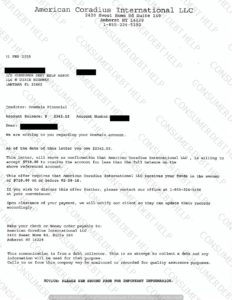
Debt Relief Specialist wants to share a settlement letter from One Main Financial. Bal. $2342.52 Offer $710.00 Savings $1632.52

Debt Relief Specialist wants to share a settlement letter from Dell Financial. Bal. $852.06 Offer $342.00 Savings $510.06
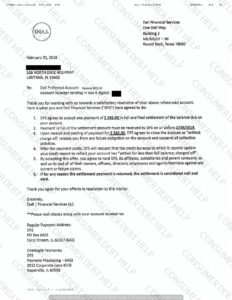
Debt Relief Specialist wants to share a settlement letter from Stein Mart/Synchrony Bank. Bal. $6426.58 Offer $1730.00 Savings $4696.58
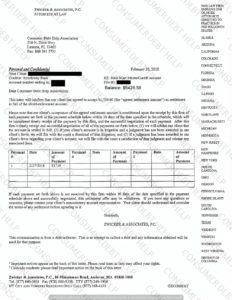
Debt Relief Specialist wants to share a settlement letter from Care Credit/Synchrony.
Bal. $4378.96
Offer $1300.00
Savings $3078.96
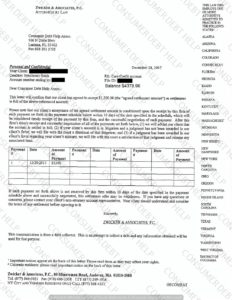
Debt Relief Specialist wants to share a settlement letter from Care Credit/Synchrony.
Bal. $460.58
Offer $162.00
Savings $298.58

Debt Relief Specialist wants to share a settlement letter from Applied Bank. Bal. $1349.77 Offer $809.86 Savings $539.91
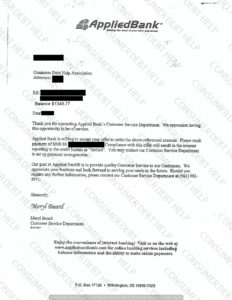
Debt Relief Specialist wants to share a settlement letter from Applied Bank. Bal. $2373.34 Offer $878.13 Savings $1495.21
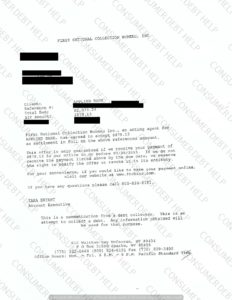
Debt Relief Specialist wants to share a settlement letter from Pen Fed Credit Union. Bal. $40,848.82 Offer $19,641.80 Savings $21,207.02
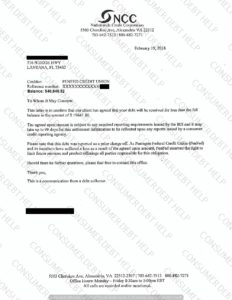
The holidays can put a financial burden even on the savviest of shoppers and savers. But like most things, taking time to plan can help you avoid the stress that comes with overspending. Before you hit the mall or shop for Black Friday deals, keep reading to learn how to make a holiday spending plan that works for you.
1. Set a budget
First, make sure you account for all of your typical expenses so that you don’t come up short on bills or things like rent. Next, think about what else you may be spending on in the coming months. Are you hosting a party at your home, or traveling to visit family or friends? If so, estimate what those things will cost you. Once you’ve subtracted any expenses from your usual budget, you can think about how much you have to spend on gifts. It’s best to start planning this as early as possible. That way you can look at how much you’ll earn between now and the holidays and calculate how much you can save to cover your holiday spending. Being realistic about your budget will help make sure you don’t overspend.
2. Make a list (and check it twice)
With all of the excitement of the holidays, it can be easy to get carried away. Make a list of the gifts you need and cross them off as you go. Check your list several times before you go shopping so that you don’t leave anything off. This is when a personal rule may come in handy. You might set a personal rule for yourself, such as: If something isn’t on your list, don’t buy it. This can get difficult when you see sales and deals pop up—but spending on something you don’t really need can make it difficult to pay for the things you do.
3. Get creative
There may be ways to give a meaningful gift at a fraction of the cost as buying something from a store. This may not work for everyone on your list, but here are some low-cost suggestions that CFPB employees have used:
•Homemade mixes in a mason jar, such as hot chocolate, bean soup, or cookie mixes
•You favorite recipes with photos in a custom picture book
4. Decide how you’re going to pay
Are you going to use cash or credit cards to pay for gifts? A helpful rule to set for yourself is to only bring the amount of money you plan to spend. That way you can help yourself stay within your budget because once you spend the money you brought, you’re done. On the other hand, using a debit card can give you more consumer rights if the item is broken when you open the box and doesn’t require you to travel with large amounts of cash. If you do decide buy your holiday gifts with a debit card, make sure you dont overspend and have set aside enough in your budget to do so.
5. Track your holiday spending
Just like you wrote down your lists to keep track of what you need to buy, you could also keep track of what you’ve spent. Periodically check to see if you are on track and sticking to your budget. Did you spend more or less than you thought you would on certain items? If you don’t keep track of what you spent, you could end up with an unpleasant surprise if you exceed your budget.
Stress is something most of us are all too familiar with. People turn to a variety of activities to help them cope with stress. Over eating, indulging in unhealthy snacks, and excessive or compulsive shopping are just a few stress-relieving behaviors that can adversely affect your health or seriously damage your budget. The suggestions listed below are offered as healthy, budget-friendly ways to relieve stress.
1.Take a hike. Sometimes just a walk down the hallway at work or a walk around the block can provide relief from a stressful moment. Incorporating a regular, mind-clearing walk into your daily routine is a great way to relieve stress.
2.Meditation is an ideal way to relieve stress. All that you need is a quiet place and a few moments and you can experience the peacefulness that meditation offers. You can find tips for learning how to meditate at websites such as StopAndBreathe.com. You may find it helpful to create a meditation space in your home or yard.
3.Listening to music is a great way to relieve stress. Some people find soothing music the best form of stress relief. For others, the best stress relieving music is something lively that they can sing along with or dance to. Find what works for you and let the music take away your stress.
4.Observation and distraction are ways to reduce stress that cost you little or nothing. When you’re feeling stressed about something, find an object or activity to focus on and give it your undivided attention. Everything from watching a sporting event to watching activity at a bird feeder fits into this category. If you’re stressed over a problem, you will often find that if you allow something to distract you from that problem, a solution will come to mind. A hobby, a phone call to a friend, a housecleaning frenzy or numerous other activities can be stress-relieving distractions.
5.Those that enjoy a frugal lifestyle are always interested in things that are both beneficial and inexpensive. Laughter is a wonderful way to relieve stress. George Gordon Byron advised, “Always laugh when you can; it is cheap medicine.” That frugal advice is still relevant today.
6.You can find numerous statistics that support the fact that pets help relieve stress. One source of information relating the positive benefits of pet ownership is HelpGuide.org. Here you will find information regarding the many therapeutic benefits a pet provides. A dog makes a great companion on a mind-clearing, stress reducing walk.
7.A very inexpensive form of stress relief is journal writing. There are various ways to approach the process of journaling to relieve stress. An excellent source of inspiration and guidance can be found at EverydayHealth.com.
8.Exercise has been described as “meditation in motion.” According to the information provided at MayoClinic.org, exercise has some direct stress-busting benefits. Following the tips offered by the Mayo Clinic staff can get you headed in the right direction when it comes to setting up a stress-busting exercise routine that is best for you.
The previously mentioned stress-reducing ideas involve little or no financial investment. They do require action and commitment on your part. Ultimately, finding and implementing ways to relieve stress is a personal process. You stand to gain in various areas of your life when you engage in stress-relieving activities that have health benefits and are emotionally uplifting.
copyright 2024 Consumer Debt Help Association - 516 N. Dixie Highway, Lantana, FL 33462. All Rights Reserved